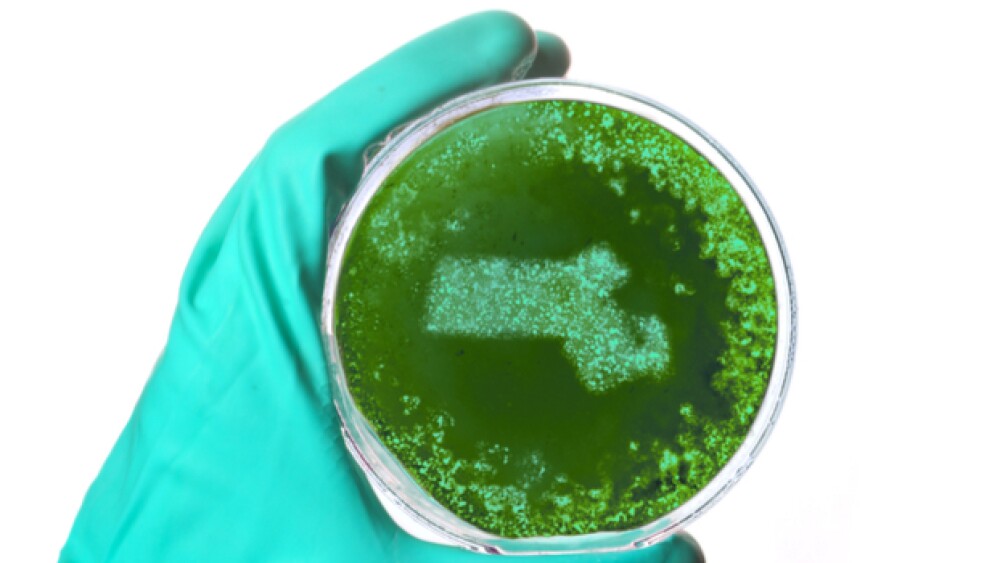Boston Business Journal recently created a list of 15 Massachusetts life science companies that in their third-quarter reports, allocated the highest percentage of total costs to research and development. Here’s a look.
The largest companies in the biopharma industry do not necessarily spend the largest proportion of funds on research and development. Some of that might be because larger companies have more infrastructure and staff to support, or some companies may be strictly research-and-development companies without having manufacturing capabilities.
Boston Business Journal recently created a list of 15 Massachusetts life science companies that in their third-quarter reports, allocated the highest percentage of total costs to research and development. Here’s a look.
Thermo Fisher Scientific. Headquartered in Waltham, Mass., in the third quarter, the company spent $240 million on R&D, or 8 percent of total spending.
Waters Corporation. Located in Milford, Mass., Waters Corporation offers a comprehensive range of analytical system solutions, software and services for scientists. In the third quarter, Waters invested 9 percent in R&D, or $35.2 million.
Haemonetics Corporation. Based in Braintree, Mass., Haemonetics focuses on blood management solutions for every aspect of the blood supply chain. In the third quarter, Haemonetics spent $8.6 million on R&D, which was 10 percent of its total spending.
Shire Pharmaceuticals. With group headquarters in Dublin and U.S. headquarters in Lexington, Mass., Shire is currently in the process of being acquired by Japan-based Takeda Pharmaceutical for $62.2 billion, or, including Shire debt, close to $80 billion. Earlier in the year, Shire sold its oncology business to France’s Servier for $2.4 billion, unrelated to the Takeda acquisition bid. The combined companies will have headquarters in Japan. In this year’s third quarter, Shire spent $407 million on R&D, which was 14 percent of total spending.
Abiomed. With headquarters in Danvers, Mass., Abiomed is a medical device company focused on circulatory support. The company was founded in 1981 to develop the world’s first artificial heart. The company invested 17 percent of its total spending into R&D in the third quarter, or $22.7 million.
Boston Scientific Corporation. Based, not in Boston, but in Marlborough, Mass., Boston Scientific third-quarter financials showed overall sales of $2.393 billion for the quarter, a 7.7 percent on a reported basis, 9.1 percent on an operational basis and 8.7 percent on an organic basis. For the quarter, it spent 22 percent on R&D out of total spending, or $289 million.
Insulet Corporation. Located in Billerica, Mass., Insulet is a medical device company focused on injectable drug delivery. On November 7, the company announced a collaboration deal with Samsung Electronics America for a Samsung Galaxy smartphone-controlled Omnipod System for insulin management for diabetes patients. It spent $21.8 million on R&D for the quarter, 23 percent of total spending.
Biogen. Headquartered in Cambridge, Mass., 29 percent of total spending this quarter went to R&D or $508 million. On November 7, the company exercised its option to acquire additional shares of South Korea’s Samsung Bioepis, a biosimilar drug maker that is a joint venture between Biogen and Samsung Biologics. Biogen is paying about $700 million to exercise the option, but it will give them 49.9 percent of Bioepis.
Alkermes. With global headquarters in Dublin, but its R&D center in Waltham, Mass., Alkermes recently took a hit when an advisory committee with the Food and Drug Administration (FDA) reviewed its New Drug Application (NDA) for ALKS 5461 for adjunctive treatment of major depressive disorder and voted that the benefit-risk profile wasn’t adequate to support approval. For the third quarter, the company dropped 35 percent of its total spending on R&D, or $101 million.
Momenta Pharmaceuticals, Inc. Headquartered in Cambridge, Mass., Momenta is focused on novel drugs for immune-mediated diseases as well as developing a pipeline of two biosimilar candidates, M923 for AbbVie’s Humira and M710, a biosimilar to Regeneron’s Eylea. Momenta spent 46 percent of total spending on R&D, or $30.7 million.
Tesaro, Inc. Based in Waltham, Mass., in its third-quarter financials, the oncology-focused company reported Zejula net revenue increased 61 percent year-over-year to $63.2 million for the third quarter. And in October, the drug had been approved in Hong Kong. The company spent a whopping 47 percent on R&D, or $94.2 million.
Alnylam Pharmaceuticals. Headquartered in Cambridge, Mass., Alnylam spent $140 million on R&D in the third quarter, or 55 percent of total spending.
Vertex Pharmaceuticals. Based in Boston, Vertex focuses on drugs to treat cystic fibrosis (CF). Its third-quarter R&D spend was $330.5 million or 57 percent of total spending.
Sarepta Therapeutics, Inc. This Cambridge, Mass.-based company is best known for its Exondys 51 for Duchenne muscular dystrophy (DMD). It spent $886.6 million in the third quarter on R&D, or 58 percent of total spending.
Agios Pharmaceuticals, Inc. Located in Cambridge, Mass., Agios announced in July that the FDA approved Tibsovo, the first oral, targeted drug for adults with relapsed/refractory acute myeloid leukemia and an IDH1 mutation. The company spent $82.6 million of total spend in the third quarter on R&D, an amazing 72 percent of total spending.





